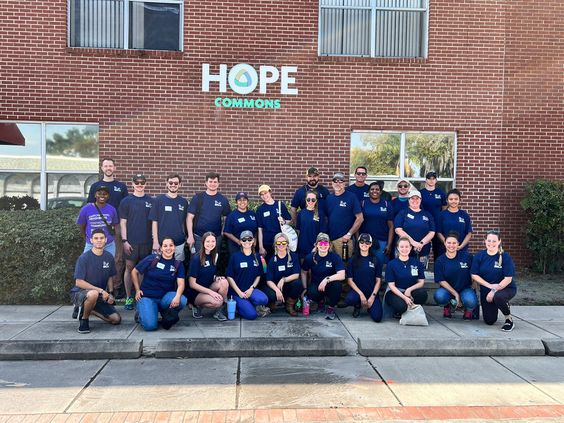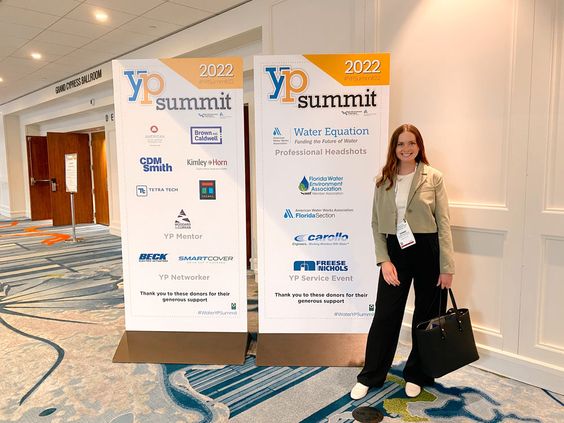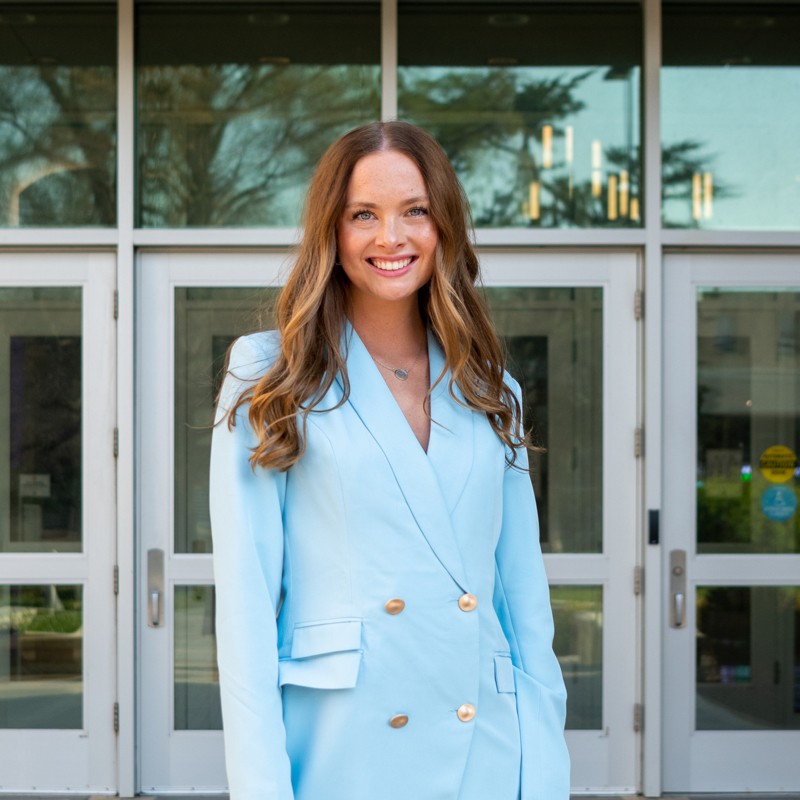Recently I attended AWWA/WEF’s Young Professionals summit. The theme for the 2022 YP Summit was creative resiliency.
This was a really interesting topic to me and the more I thought and learned about the meaning of creative resiliency, I realized how much the two go hand in hand. Resilient solutions require creative actions. As a human race, we have always had to be resilient and we have all had to be especially resilient over the past two years, thinking creatively to keep our personal and professional lives progressing even when it felt like the world had stopped. Our resiliency is rooted in the creative ways we have come up with to remotely build company culture, interact with clients, care for loved ones, and so much more.
During one of the sessions at the summit, we were asked to write down all of the challenges we have had to overcome over the past two years. I thought back to both my personal and professional life and I realized just how many times I have had to be resilient. This was incredibly eye-opening, because I was now looking at a list of acts of resiliency, both large acts and small. We then thought back to the creativity needed in order to overcome those challenges. Again, this made me realize how interconnected the concept of creative resiliency truly is. We see creative resiliency being demonstrated in all aspects of our lives and looking at the water industry, we see no exception. The water industry has faced, and is facing a lot of challenges, and the more complicated the challenge, the more creativity needed in order to be resilient. I saw a glimpse of this creativity when connecting with other young professionals. And while yes, the industry is typically slow to adopt, we have seen creative resiliency in challenges such as sustainability- creative solutions have changed the ways we treat water, test it, monitor it, reuse it, conserve it, and so much more. One of the takeaways of this session that resonated with me was Dr. Celia Earle’s 10 rules to resiliency. They capture actions we can take in order to become more resilient. These are applicable not only in our jobs, and the water industry, but in our personal lives as well.
Dr. Celia Earle’s 10 Rules to Resiliency:
- Be a team player
- Work hard, even when no one is watching
- Always volunteer
- Learn to juggle projects
- Do not break projects
- Get to know staff at all levels of a client organization
- Treat everyone with respect
- Keep learning
- Be a role model/mentor
- Pay it forward
One of the most valuable things I was able to gain throughout the summit was perspective from other professionals in the industry. I have only been in the water industry for about a year and at Transcend, we are currently focused on wastewater, so I have been able to learn a lot about what goes on inside the fence of a wastewater treatment plant, but in connecting with others, I was able to see a much broader picture of the industry, learning more about the challenges we are facing inside the fence versus outside the fence, municipal and industrial solutions, drinking water, etc. It was really enlightening to better understand how other companies do (or don’t) work together, how industry trends affect them in different ways, and the variety of technologies used to treat the many types of water. The opportunity to sit around one table with sales engineers, business development associates, and process engineers from across the country in multiple sectors of the industry was one of my favorite parts of the YP Summit. I sat with professionals from municipalities, engineering firms, software companies, and technology providers and I was able to hear in detail about their jobs, how they interact with one another, as well as their thoughts on innovation in the industry. We also got the opportunity to work as a team to brainstorm a solution of a challenge the industry is facing. As we discussed what would be the best solution, I was able to learn about how different companies are funded, how and where solutions are applicable, how different companies follow industry trends, how they’re affected by regulation change, and what innovation means to both them and their company. All of this factored into the many ideas we brainstormed. This activity is where we were able to truly share perspectives and by working together, using what we had learned about creative resiliency, we were able to reach a solution for our challenge.
I also participated in a service project in partnership with Toho Water Authority and Hope Commons. Hope Commons is a non-profit that aims to provide a holistic continuum of care to end homelessness and poverty in Central Florida. Their building serves as a safe place for people to access identification services, information about job opportunities, internet services, showers, and even rapid rehousing. We were able to help restore the outside of their building. We spent the afternoon cleaning, planting, mulching, and painting to be able to provide Hope Commons with an inviting feel for the clients they are serving. I loved being able to connect with the local community. The impact that Hope Commons is leaving on people on the communities is truly inspiring and I was so thankful that I was able to be a part of this project. Overall, I left the YP Summit feeling very inspired about the future of this industry and thankful for the experiences and connections I was able to create.




 Remmie Monahan is a Business Development Associate with Transcend. Remmie graduated from Kansas State University in 2021 with a degree in Entrepreneurship and Personal Financial Planning.
Remmie Monahan is a Business Development Associate with Transcend. Remmie graduated from Kansas State University in 2021 with a degree in Entrepreneurship and Personal Financial Planning.